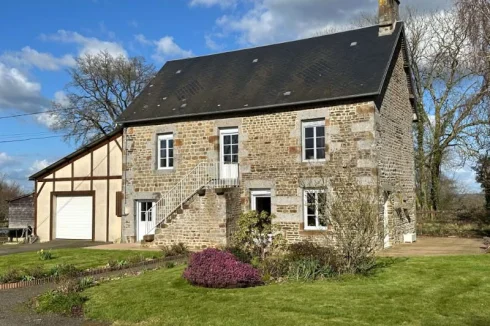Energy Efficiency Surveys Get Poor Rating
Tuesday 01 March 2011
The quality of the energy surveys carried out on house sales has been roundly criticised by a leading French consumer group.
In a test of the surveys carried out by the consumer body Que Choisir, it found substantial variations in the energy efficiency rating given to the same property.
In four properties surveyed by 16 different ‘diagnostiqueurs’, two properties were classed in three different efficiency ratings, two were given two different ratings, and only one was attributed the same rating by all the companies.
In the worst case, this means that the property was given an energy classification ranging from C through to E, representing a variation in energy consumption of between 134kWh to 244kWh per m2 per year.
That is equivalent to a difference in the average annual energy bill of between €1000 and €1800.
It is not entirely clear why there has been a lack of consistency in the results, but one factor seems to be the different equipment used by the companies, and the lack of standardisation in diagnostic techniques.
The surveys that are carried out are the Diagnostics de Performance Energétique (DPE), which are now mandatory on all adverts for house sales and lettings (excluding holiday lettings).
The same process applies elsewhere in Europe, as part of an EU wide directive.
The aim of these surveys is to try and incite owners to undertake energy conservation works, with a view to improving the value of their property.
There are seven energy performance ratings that are used, from A (50kWh/m2/year) to G (450kWh/m2/year).
Given the results, it is probably as well that the legal value of these surveys is limited, as they are for information purposes only.
Accordingly, if the surveyor gets it wrong, there is no action the buyer could take against the seller.
Que Choisir contest strongly the lack of judicial supervision of the surveys, and they are demanding that there be a right of recourse between buyer and seller against ratings that are incorrect.
Of the up to eight statutory surveys that are required as part of a house sale, the energy survey is the only one not to have any legal nexus between buyer and seller.
Although many consider the energy reports of little use in determining the value of a property for sale, government backed interest free loans to first time buyers depend in part on the energy rating granted to the property.
As a result of this study the government has convened a meeting of the relevant professional associations, with a view to tightening training and procedures.
Thank you for showing an interest in our News section.
Our News section is no longer being published although our catalogue of articles remains in place.
If you found our News useful, please have a look at France Insider, our subscription based News service with in-depth analysis, or our authoritative Guides to France.
If you require advice and assistance with the purchase of French property and moving to France, then take a look at the France Insider Property Clinic.





